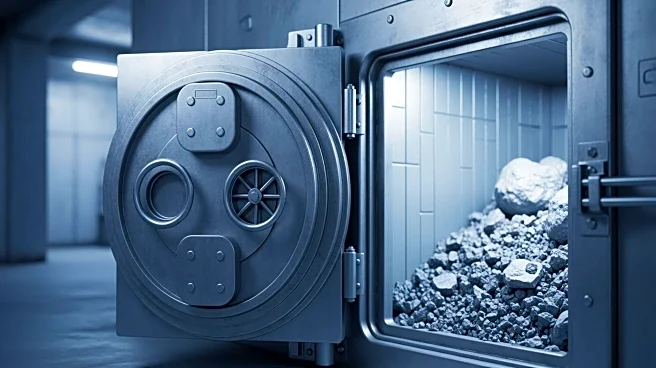What's Happening?
Treasury Secretary Scott Bessent has announced plans to expand the U.S. national stockpile of strategic minerals, including lithium and rare earths, essential for renewable energy technologies and military weapons. The government is now investing in companies
supplying these minerals, raising concerns about taxpayer risks. Critics argue that the boom-and-bust nature of the mining industry poses financial risks to taxpayers, who are now shareholders in these companies. The initiative has sparked debate over the need for congressional oversight and the potential for oversupply due to taxpayer subsidies.
Why It's Important?
The expansion of the strategic minerals reserve is significant for U.S. energy and defense sectors, but it also raises questions about fiscal responsibility and taxpayer exposure to market volatility. The initiative could impact the mining industry, potentially leading to oversupply and financial losses. The lack of congressional oversight and transparency in investment risks could result in taxpayers funding unprofitable ventures. This situation highlights the need for modernizing mining laws and exploring alternative strategies for securing mineral supply chains.
What's Next?
Congress may need to address the oversight and transparency issues associated with the strategic minerals reserve. Potential legislative actions could include reforms to mining laws and increased scrutiny of government investments in the mining sector. The focus may shift towards innovation and research in alternative materials and technologies to reduce dependency on traditional mining. Stakeholders, including policymakers and industry leaders, will likely engage in discussions to balance mineral security with fiscal responsibility.
Beyond the Headlines
The strategic minerals reserve initiative reflects broader challenges in U.S. mineral supply chains, including outdated mining laws and the need for sustainable practices. The focus on stockpiling minerals rather than fostering innovation could limit long-term solutions to supply chain issues. Ethical considerations around environmental impact and land use may also arise, prompting discussions on responsible mining practices and the role of government in resource management.

















